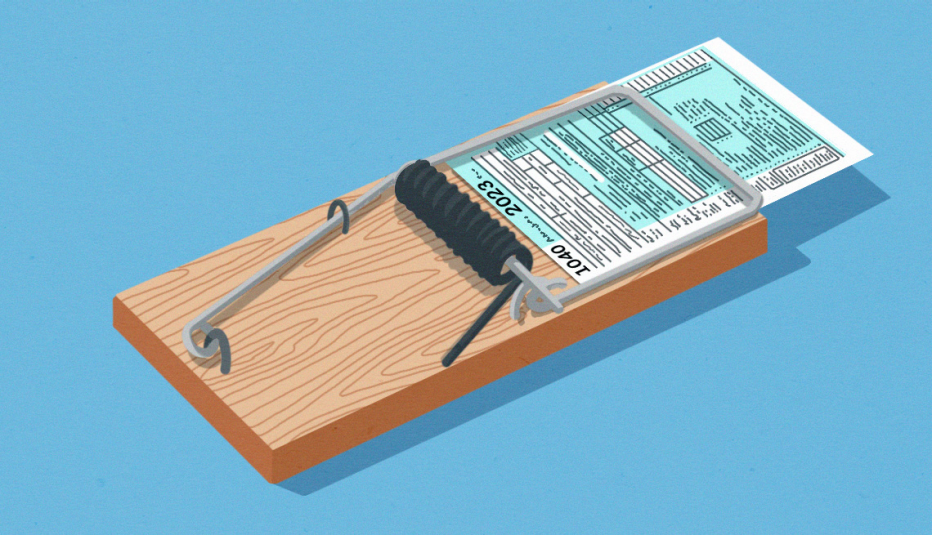AARP Hearing Center


Tax season can be scary enough without the specter of unscrupulous tax preparers.
Shady operators that the Internal Revenue Service (IRS) calls “ghosts” don’t have a legally required Preparer Tax Identification Number (PTIN) for 2026, unlike nearly 685,000 U.S. tax professionals. They also don’t sign the returns they work on, leaving their clients responsible for any filing falsehoods.
It’s more than just a paperwork problem. Ghost preparers set up shop around tax time in pop-up offices and pitch their services at community gathering places such as churches or on social media. They promise big refunds, often basing their fees on a percentage of the refund. To inflate what you get back from Uncle Sam — and what they get from you — they might invent income to falsely claim tax credits or fabricate deductions such as business, education or medical expenses.
Many scammers then disappear with your fee, and, because your name is on the return, it’s your responsibility to fix the “mistakes.” That means that, along with paying the taxes you actually owe, you’re liable for any penalties and interest that accrued while you were in arrears.
Some ghost preparers take the scam a step further, stealing refunds outright by routing them into their own bank accounts. Other perpetrators of tax prep fraud work online, sending phishing emails that appear to be from tax pros, or creating impostor websites that claim to prepare and e-file your return.
Recent tax-prep scams
The IRS's list of tax scams, what the agency calls the “dirty dozen,” includes:
- Scammers offering to help taxpayers set up their IRS online account at IRS.gov. Their goal is to steal personal information, asking for the individual’s Social Security number and other sensitive data, says the IRS, which notes that it’s simple to set up your own account.
- Scammers will also pretend to be from the IRS, sending a letter, email or text suggesting you have an unclaimed refund or owe money. In a warning about these impostor scams, the IRS says it “doesn’t initiate contact with taxpayers by email, text messages or social media channels to request personal or financial information.”






































































More on Scams and Fraud
How to Spot Impostor Scams
Identify and avoid 10 common impostor scams
Reporting Scams: How, Where and Why
Reporting fraud to law enforcement can help you get closure and, in some cases, justice
Many Scam Victims Are Hit Again — by Taxes
Gamblers can deduct losses. New laws say fraud victims can’t